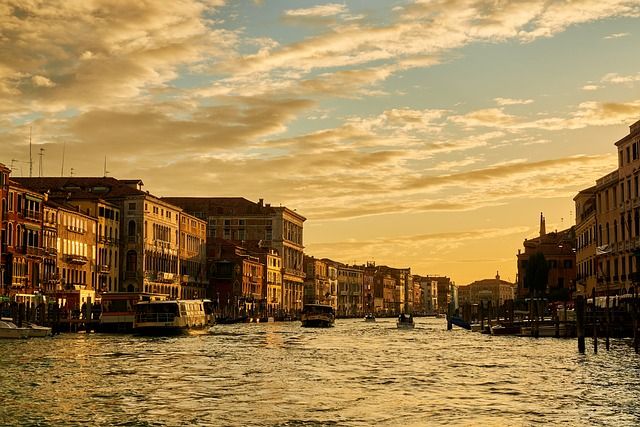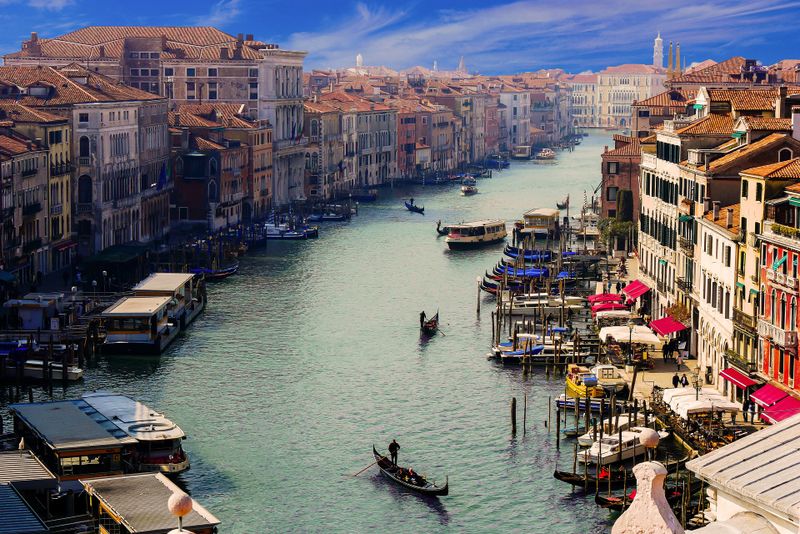Venice, with its picturesque canals, elegant gondolas, and fascinating history, is one of the most iconic and romantic cities in the world.
But have you ever wondered why Venice is known as "La Serenissima"?
This nickname, rich in meaning and history, has its roots in the city's glorious past and reflects its political, economic, and cultural significance.
Why is Venice called "La Serenissima": The origins of the name

The term "Serenissima" derives from the Latin "serenissimus," meaning "very serene" or "very calm."
In ancient times, the adjective "serenissimo" was often used to describe rulers and people of high rank, suggesting superior dignity and tranquility.
When Venice became an important power in the Middle Ages, the title was applied to the city itself as a symbol of its elevated status and stable governance.
Venice and the Serenity of its government
One of the main reasons Venice is called "La Serenissima" lies in the unique structure of its government.
Unlike many other states of the time, Venice was an oligarchic republic, governed by a Doge elected for life and a council of nobles.
This form of government, which ensured stability and continuity, helped maintain internal peace and prevent significant internal conflicts.
The Venetian political system was extraordinarily complex and balanced, with various institutions checking each other.
This balance of power helped maintain order and serenity within the city, contributing to the perception of Venice as a peaceful and well-governed city.
Why is Venice called La Serenissima: Economic and maritime power
During the Middle Ages and the Renaissance, Venice was one of the most influential economic and maritime powers in the world.
Its strategic position on the Adriatic Sea made it a crucial hub for trade between Europe and the East. Venetian ships sailed the seas, carrying precious goods such as spices, silk, and gemstones.
This economic prosperity not only enriched the city but also contributed to its reputation for serenity and stability.
A wealthy and influential city was less likely to be threatened by external enemies or suffer from internal turmoil. Venice's wealth and power were symbols of its serenity and good governance.
Culture and art
Venice was not only a commercial and political center but also a cultural beacon.
Artists, musicians, and intellectuals from all over Europe were drawn to the city, which became a center of artistic and cultural innovation.
The Serenissima hosted great artists such as Titian, Tintoretto, and Veronese, whose works adorned the city's palaces and churches.
Venetian art and culture reflected and contributed to the perception of the city as a place of beauty and serenity. Sumptuous celebrations, festivals, and monumental works of art were expressions of the city's wealth and serenity.
External peace
Another factor that contributed to Venice's nickname was its ability to maintain peaceful relations with many other nations.
Despite being a formidable military and naval power, Venice often preferred diplomacy to war.
This diplomatic approach allowed the city to maintain stable relations with other powers and avoid prolonged conflicts that could have threatened its internal serenity.
Why is Venice called "La Serenissima"? Legend and myth
In addition to historical facts, the nickname "La Serenissima" has been fueled by the legends and myths surrounding Venice.
The city itself, with its breathtaking architecture, winding canals, and romantic atmosphere, evokes a sense of mystery and tranquility.
The stories of intrigue, love, and adventure that take place among its streets help keep alive the image of Venice as a serene and magical city.
Why is Venice called "La Serenissima": Conclusion
The nickname "La Serenissima" is a tribute to Venice's unique history, political stability, economic power, and cultural wealth.
It is a name that evokes a glorious past and a city that, despite modern challenges, continues to enchant the world with its timeless beauty.
Venice, with its serenity and charm, remains a living testament to the greatness and dignity of the past, and the title of "La Serenissima" still fits it perfectly today.

